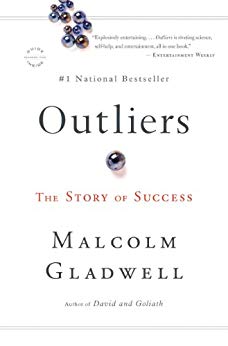

This article is an excerpt from the Shortform summary of "Outliers" by Malcolm Gladwell. Shortform has the world's best summaries of books you should be reading.
Like this article? Sign up for a free trial here .
What is concerted cultivation? Described by sociologist Annette Lareau, this parenting style involves active engagement of parents in their children’s lives and activities. Is Concerted Cultivation good, and are there limits? Learn more in this excerpt from Outliers.
Our families have a huge role in cultivating our practical intelligence…or not. We intuitively understand that a wealthy family creates opportunities for its children by sending them to good schools and paying for coaches and tutors. But a family’s wealth can also impact its parenting practices, affecting a child’s chances of success in less direct ways.
When one sociologist and her researchers followed the families of twelve third graders, they expected to observe various parenting styles. Instead, what they found were two distinct philosophies, and the parents divided along class, rather than racial or cultural, lines.
Concerted Cultivation: The Middle-Class Parent’s Approach
Concerted Cultivation is a parenting style where parents take an active role in their children’s education and development. They shuttle them to various extracurricular activities and ask them numerous questions about their days, teachers, and classmates. They cram their children’s free time with enriching activities. Parents practicing concerted cultivation are involved.
Concerted Cultivation is more often seen in middle-class and wealthy families.
Traits of Concerted Cultivation
- Parents practicing concerted cultivation are on the lookout for their children’s interests so they can help them develop those interests into talents.
- They tend to explain their decisions rather than make commands.
- Parents practicing concerted cultivation expect their children to have opinions and negotiate.
- They advocate on their child’s behalf, teaching him or her by example to stand up to authority figures like teachers and doctors.
Benefits of Concerted Cultivation
- Kids learn to adapt to the expectations of various people, situations, and experiences.
- They learn teamwork from their extracurricular sports.
- They learn to be comfortable interacting with adults.
- They learn to self-advocate.
An example is a boy whose mother encourages him to think of a list of questions to ask his doctor on the way to a routine appointment. At the appointment, the boy asks his questions freely and is confident enough to correct the doctor regarding his age. This is the result of concerted cultivation.
The Working-Class Parent’s Approach
Kids from poorer families didn’t have play time that was orchestrated by their parents. Instead, they made up games with their siblings and neighbors and played in the backyard. This parenting style is a hands-off approach. Parents feel responsible for caring for their children, but they leave them to develop naturally, on their own. This is a strategy of “accomplishment of natural growth.”
Results of Concerted Cultivation
Neither parenting style is “better,” but concerted cultivation results in children with a sense of entitlement, or a feeling of the right to pursue their individual preferences and to shape their interactions. While we tend to think of entitlement as a bad thing, it may be a foundational pillar of success. Children with a sense of entitlement know how to ask for what they want and get it. They know how to play by the rules of life and win.
In contrast, kids from working-class and poor families didn’t seem to know how to manipulate an environment to get what they wanted. They never made special requests of teachers or advocated for themselves. They weren’t comfortable around adults and even felt distrust. This is what happens when concerted cultivation is lacking.
Concerted cultivation fosters the growth of practical intelligence. Children from middle-class families are not born with more practical intelligence than their working-class peers. They learn it from their families, and are therefore in a better position for success as they grow older. Practical intelligence is a cultural advantage.
Robert Oppenheimer’s Concerted Cultivation Background
Oppenheimer’s parents practiced concerted cultivation: The New York Mineralogical Club, impressed by the geology knowledge young Robert Oppenheimer demonstrated in his correspondences and not realizing that he was only twelve, invited him to speak at one of their meetings. His parents encouraged him to accept the honor and take his place among the other experts.
Oppenheimer’s parents taught him that he had a right to converse with adults on equal footing, and this instilled in him a sense of entitlement. His father, who worked his way up the ranks in the business world, was a model of how to negotiate to get what you want. Oppenheimer’s family and teachers cultivated his practical intelligence from a young age.
———End of Preview———

Like what you just read? Read the rest of the world's best summary of "Outliers" at Shortform . Learn the book's critical concepts in 20 minutes or less .
Here's what you'll find in our full Outliers summary :
- What makes some people outliers, and most others not
- Why some genius outliers end up failing in life
- Why Asians are good at math, and other curiosities of culture






